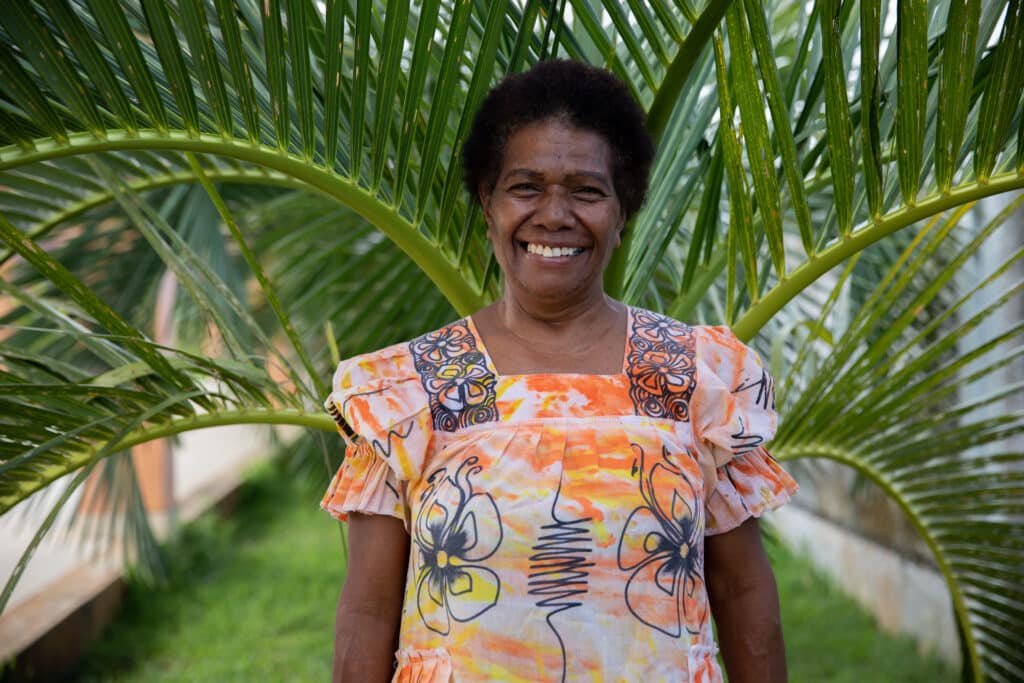Thousands of women have formed the Women Wetem Weta (WWW) network in Vanuatu, where they share disaster preparedness information and warnings and coordinate to distribute fresh food. It’s proven faster and more effective than waiting for government assessment and aid.
Vanuatu is one of the world’s most vulnerable nations to climate change and is losing about 10 per cent of its GDP to responding to disasters. Yet an investment in disaster preparedness could stem the flow of those losses, while delivering an economic benefit and empowering women to lead in a way they never have.
According to a new Australia Pacific Climate Partnership report, for every $1 invested in disaster preparedness, Vanuatu reaps $4.40 in economic benefit. Three case studies are included in the research including Palau, Fiji, and Vanuatu. The research provides one of the first studies to ever measure the economic value of women’s participation in climate actions and disaster risk reduction in the Pacific.
Across the board, the research found that preparing for disaster has far greater economic benefits than responding to it. Early warning information is particularly cost-effective if the message advises of an upcoming hazard and also includes practical early actions that households can undertake.
When two cyclones hit Vanuatu during the same week last April, 80 per cent of the island saw damaged infrastructure, water and power shortages, significant home and garden loss. But on islands like Malo, where an ActionAid early warning and information program called Women Wetem Weta (WWW) has been working with women to use mobile phones to disseminate disaster preparedness information, the women quickly rolled up their sleeves.
Rather than waiting for government assessment and aid, WWW members surveyed damaged regions themselves and accounted for all residents, including traditionally neglected women-led or disability-led households. They provided fresh food to more than 30,000 people on neighbouring islands.
“We did something that surprised a Tanna chief … because he did not believe in this network,” said Betina Charlie, a WWW member from Malo. “They said we were wasting time, but when the ladies from Malo got to Tanna with the relief foods, they received the chief’s support.”
This instance prompted the government to invite the network to formally join the National Emergency Operations Centre led by the National Disaster Management Office (NDMO). Now the NDMO reviews messages being sent for accuracy and consistency and relies on it for wider reach.
“The NDMO called the women, ‘Please we need your help, ladies’,” says Joyce Yaris from Tanna. “During [the cyclones], the entire [WWW] executive team led the recovery response.”After the twin cyclones, the network swelled from 5,000 to 9,000 members, and more are joining.
ActionAid has supported women to identify their needs and successfully advocate for these priorities with the government to improve services in communities. When WWW chapters all gathered in the capital, Port Vila, in 2020, the late Dorisday Kenneth Watson, who was then Director General of the Ministry of Community, Social Services and Justice, said: “This network has had the chance to voice concerns, and allows the women to see why they need to be more involved in the community and what they bring to the community. It’s more than representation, it’s about substantial representation.”
It’s helped [women] learn how to frame their thinking and move forward.”
Jocelyn Naupa from the island of Erromango agrees. She says being a member means that women know when storms are coming, they have emergency bags packed, and know when and where to evacuate to. They know how to prepare their homes and gardens. They account for the most vulnerable in their communities and make sure their needs are met. And in calm times, they work on their gardens, and on making new products and participating in local markets as part of building long term resilience to disasters.
“It has given us voice and confidence,” Naupa says. “When women make more money through these initiatives they use it for school fees for the kids and sometimes to help church and women’s programs.”
Leiwia Poki from Erromango has now led her community through climate disasters and COVID-19. Along the way, she’s challenging gender norms by showing what women are capable of.



